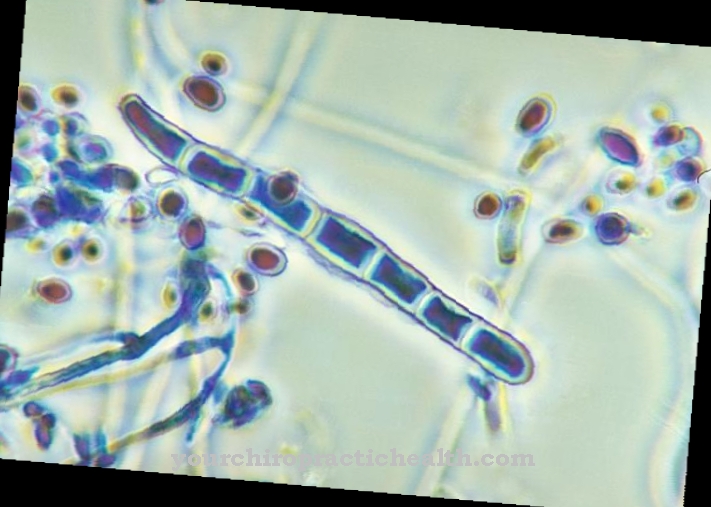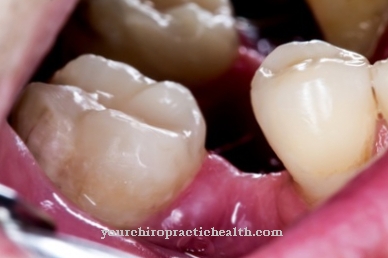The Poor drinking occurs especially in premature babies and corresponds to a reduction in the sucking reflex. The cause can be lesions of the central nervous system, infections or medication intake of the mother during breastfeeding. If necessary, treatment is given via a gastric tube.
What is a drinking weakness?

© Oscar Brunet - stock.adobe.com
Infants have more reflexes than adults. This excess of reflexes is on the one hand related to the insufficient maturation of the motor neurons and on the other hand is supposed to ensure the survival of the infant. A reflex that is vital in evolutionary terms is, for example, the sucking reflex, which induces babies to suckle on the mother's breast.
The reflex is triggered by a touch stimulus on the newborn's lips. The so-called drinking weakness is a disturbance of this reflex sucking movement. The drinking weakness manifests itself in newborns and corresponds to a sometimes pathological symptom that manifests itself in the form of a reduced sucking reflex.
The drinking weakness can be symptomatic of a higher-level disease and thus refer to a syndrome, for example. However, the reduction in the sucking reflex can also be an acquired phenomenon. A slightly reduced sucking reflex does not necessarily have a pathological value. Drinking weaknesses are particularly common in premature babies.
causes
Each reflex corresponds to a reflex arc. At the beginning of the reflex arc there is a stimulus that is picked up by the sensory cells and causes them to develop an action potential. The stimulus information reaches the central nervous system via sensitive afferent nerve tracts, where it is connected to motor nerve tracts and finally migrates to the muscles involved.
In this way, a stimulus triggers a motor-reflex response in the sense of a movement or a sequence of movements. A reflex arc also forms the basis of the infant's sucking reflex. The drinking weakness corresponds to a disturbance of the reflex arc, which is either congenital or acquired. The cause is damage to the nerve tissue involved in the reflex.
This damage can correspond to traumatic, inflammatory, toxic or genetic damage. Genetically determined forms are usually underdevelopments of the nerve structures involved. Apart from these causes, poor drinking can indicate infections. The drinking reflex can also be reduced in weakened infants. In addition, poor drinking can be associated with the mother's medication intake during breastfeeding.
Diseases with this symptom
- Malnutrition
- Tetanus
- Meningitis
Diagnosis & course
When the maternal breast touches the infant's mouth or her mouth is gently touched by a finger, that touch triggers the sucking reflex in a healthy infant. A newborn with a drinking weakness does not suckle despite the touch, or at least with reduced strength. That raises nutritional problems.
For this reason, the most common accompanying symptom of poor drinking is malnutrition, which can further weaken the baby's constitution. A pathological drinking weakness is only mentioned above a certain extent. If the infant remains asymptomatic in spite of a slightly reduced suction performance, the weak drinking usually has no disease value.
If there are accompanying symptoms or a pronounced weakness, there is a disease value. In addition to the weakness caused by malnutrition, other symptoms can arise, each of which depends on the cause of the decreased reflexes.
The doctor develops the first suspicion of poor drinking when taking anamnesis. The visual diagnosis can also provide decisive information, for example if malnutrition, abnormal weakness or the symptoms of a certain syndrome with symptomatic drinking weakness are evident. The extent of drinking weakness can be determined by performing a provocation test in the form of touching the mouth.
Wide-ranging examinations are carried out to determine the cause of a drinking weakness. For example, imaging of the brain and spine reveals lesions of the central nervous system. The presence of an infection can also be confirmed or excluded by means of a clinical examination. The prognosis for infants with poor drinking depends on the extent of the decreased reflexes.
Complications
Many different complications can arise in the case of a drinking weakness, which depend heavily on the severity of the weak drinking. However, drinking weakness is always a very unhealthy condition for the human body and must therefore always be treated. Without treatment, the drinking weakness can lead to serious consequential damage that cannot be treated reversibly.
As a rule, poor drinking leads to severe headaches and other complaints. The patient often feels tired and depressed, and a general feeling of illness occurs. Especially with flu and colds, patients should drink the liquid. In the case of drinking weakness, sporting activity can only be carried out with severe restrictions, as the patient does not have enough water to sweat.
In the worst case, this can lead to a circulatory collapse if the heat cannot be properly dissipated. Most of the time, poor drinking is treated during psychological discussions, as it often has a psychological cause. In many cases just a few conversations will help to eliminate the drinking weakness. Parents also play an important part in preventing the child from developing a drinking problem. Most of the time, however, the disease is positive and does not lead to further complications if treated in time.
When should you go to the doctor?
In most cases, poor drinking occurs in infants. The swallowing reflex is not developed at all or only partially. Because of this, food intake problems and complications arise. If affected parents notice this clinical picture in their own child, a doctor must be consulted immediately. A remedy can only be found through appropriate treatment.
Anyone who refrains from treatment or a visit to the doctor at this point is running a dangerous risk. Under certain circumstances, malnutrition can occur, which can have serious consequences, especially at this early stage of development. Nutrient deficiency can lead to permanent damage, so a visit to the doctor is imperative. The following applies: Most of the nutrients are absorbed by babies through drinking. For this reason, it is extremely important that infants drink enough fluids. If this process is restricted by poor drinking, extreme caution is required.
In such a case, a visit to the pediatrician should not be put off on the back burner. Permanent consequential damage can only be avoided through early treatment. If you wait too long at this point, you must expect permanent consequential damage to your child.
Doctors & therapists in your area
Treatment & Therapy
The therapy for drinking weakness depends on the causes and the extent of the weakness. In the case of a subtle drinking weakness, the infant first receives the bottle with the required amount of milk. The selection of the suction cup is crucial in this case. The teat is chosen in a design that makes it easier for the infant to suckle.
If these measures are not sufficient to secure nutrition, a nasogastric tube can be used to stabilize the constitution. The probe is usually inserted through the nose and reaches the digestive tract through the nose. The baby is fed through this tube for as long as necessary. In most cases, severe drinking problems are treated as inpatients in the clinic.
If, instead of damaging the brain, the mother's medication is causing the mother to drink weakness, the bottle of milk is usually sufficient for treatment. For infections, treatment is in most cases the same as giving antibiotics or anti-inflammatory drugs if infectious inflammation is present.
A causal treatment of the drinking weakness takes place only in the case of drinking weaknesses through maternal medication or general weakness and in the case of infection-related decreased reflexes. In the context of lesions of the central nervous system, the weakness can only be Treated symptomatically.
Outlook & forecast
Failure to drink can lead to various complications and other complaints. In many cases, the drinking weakness improves on its own and disappears again, so that no additional treatment is necessary. If the drinking weakness is not treated, the body will permanently receive too little fluid. This has a negative effect on the individual organs and the quality of life.
In many cases, the inability to drink leads to headache and a general feeling of weakness. In the case of very pronounced drinking weakness, certain organs can also be damaged by the lack of fluid. In some cases, those affected also have fainting spells.
In most cases, treatment is successful and does not entail any further complications. However, in some cases it has to be done psychologically if the drinking weakness is due to a psychological problem. Parents need to teach their children that poor drinking can be dangerous for their own body. So they have a great responsibility to avoid this symptom.
prevention
Drinking weakness can only be prevented to the extent that measures to prevent infections or maternal medication are available during breastfeeding. Genetically determined lesions of the central nervous system are difficult to completely rule out. However, abstinence and a balanced diet during pregnancy can be understood as a preventive measure in the broadest sense.
You can do that yourself
If there is a suspicion of a drinking weakness, a pediatrician must be consulted promptly. In everyday life, it makes sense to regularly check the child's weight and observe their behavior. If the child gains weight, there is hardly any danger. If the child is very restless, quickly exhausted, sleeps excessively, can hardly be woken up - then it is necessary to see the pediatrician. Together you can decide whether breastfeeding is sufficient or whether you need to feed. Even a feeding tube is temporarily an option.
When giving milk from a drinking bottle, the amount consumed can be better controlled. Frequent, smaller meals with thin milk are well suited for low-drinking infants. The size and type of teat can also have a positive effect on drinking behavior.
Before meals, stimuli placed in the mouth area are helpful for the development of the swallowing reflex. A light finger pressure on the lips, gentle massages on the floor of the mouth or small taste stimuli on the tip of the tongue promote perception in the mouth. The little finger strokes the gums, circles the cheeks, exerts light pressure on the roof of the mouth and tongue. Often the child then begins to suck on the finger and is then attentive enough to eat.




.jpg)




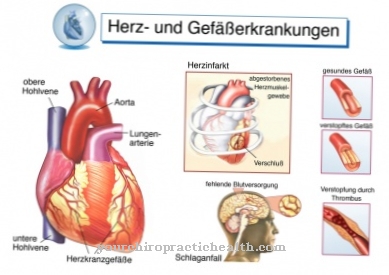
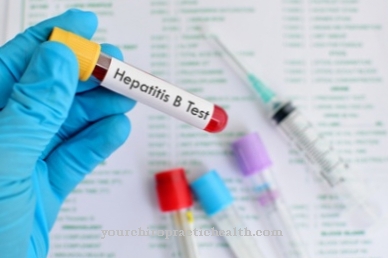


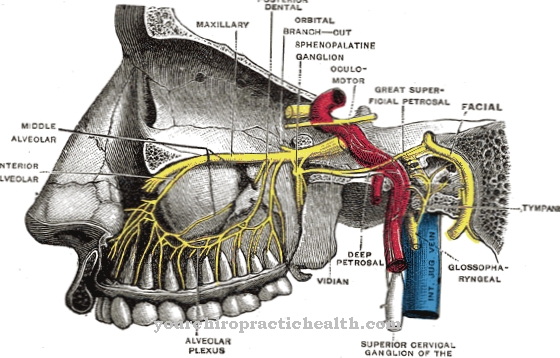
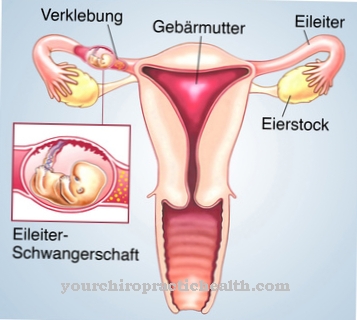
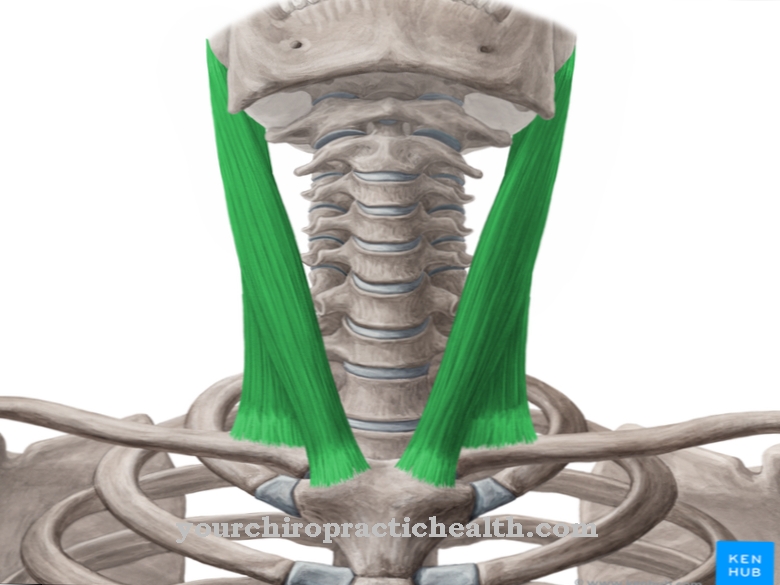




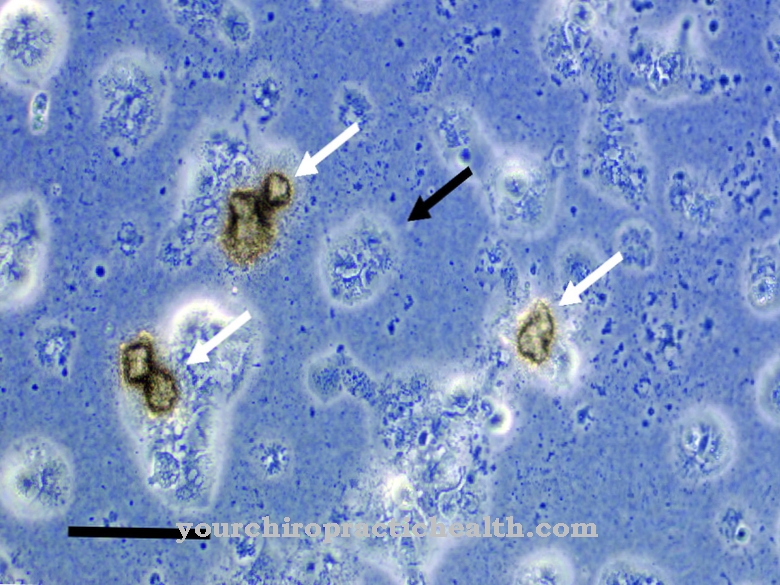
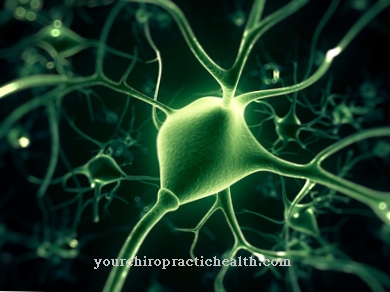
.jpg)
.jpg)

